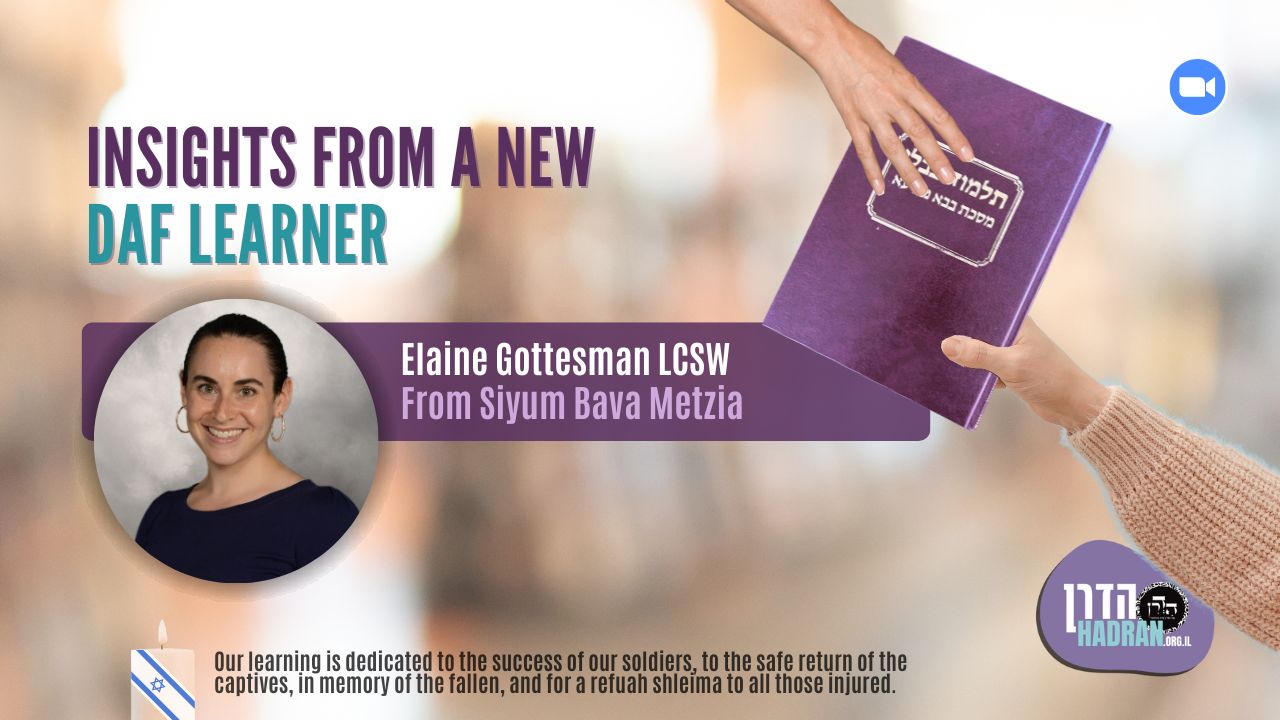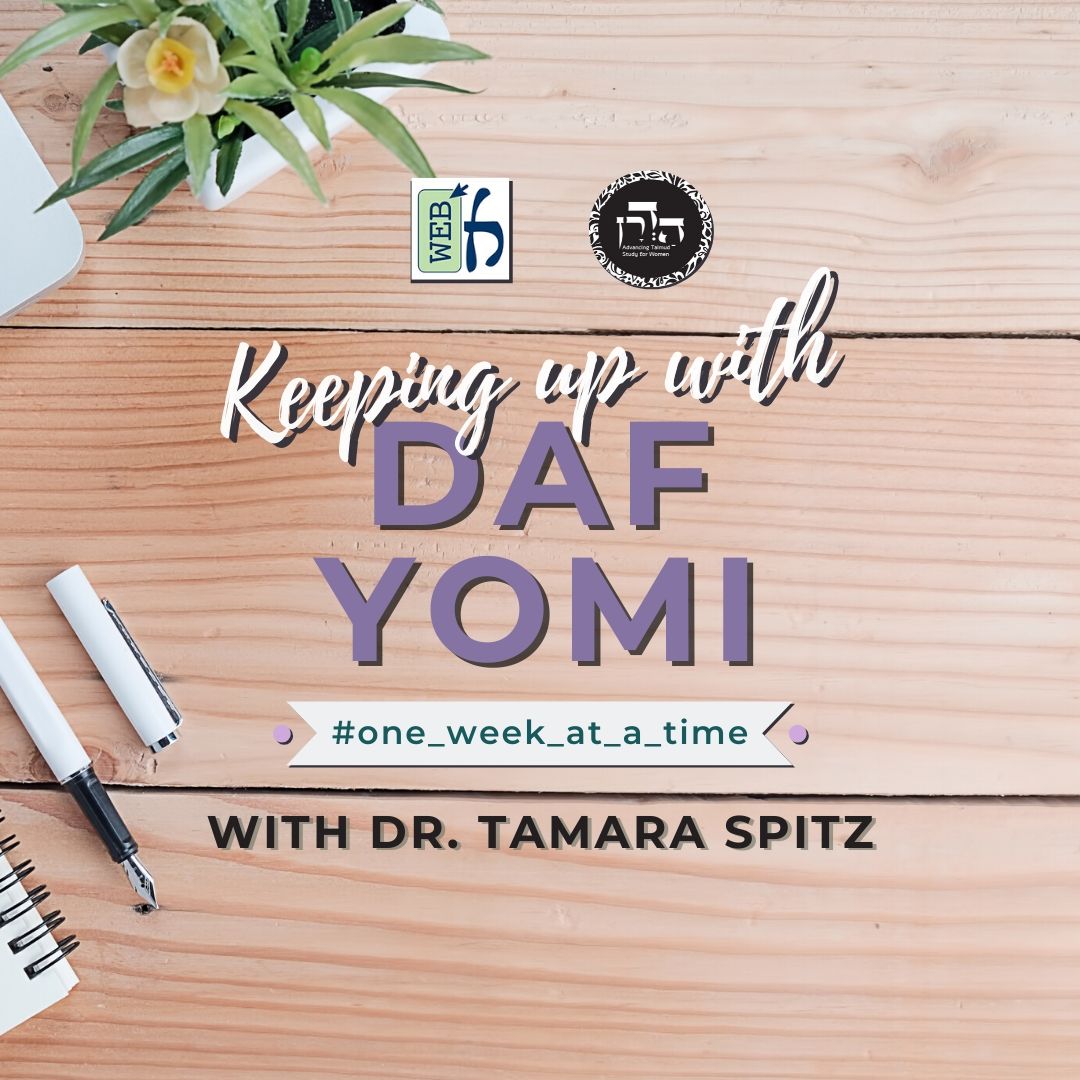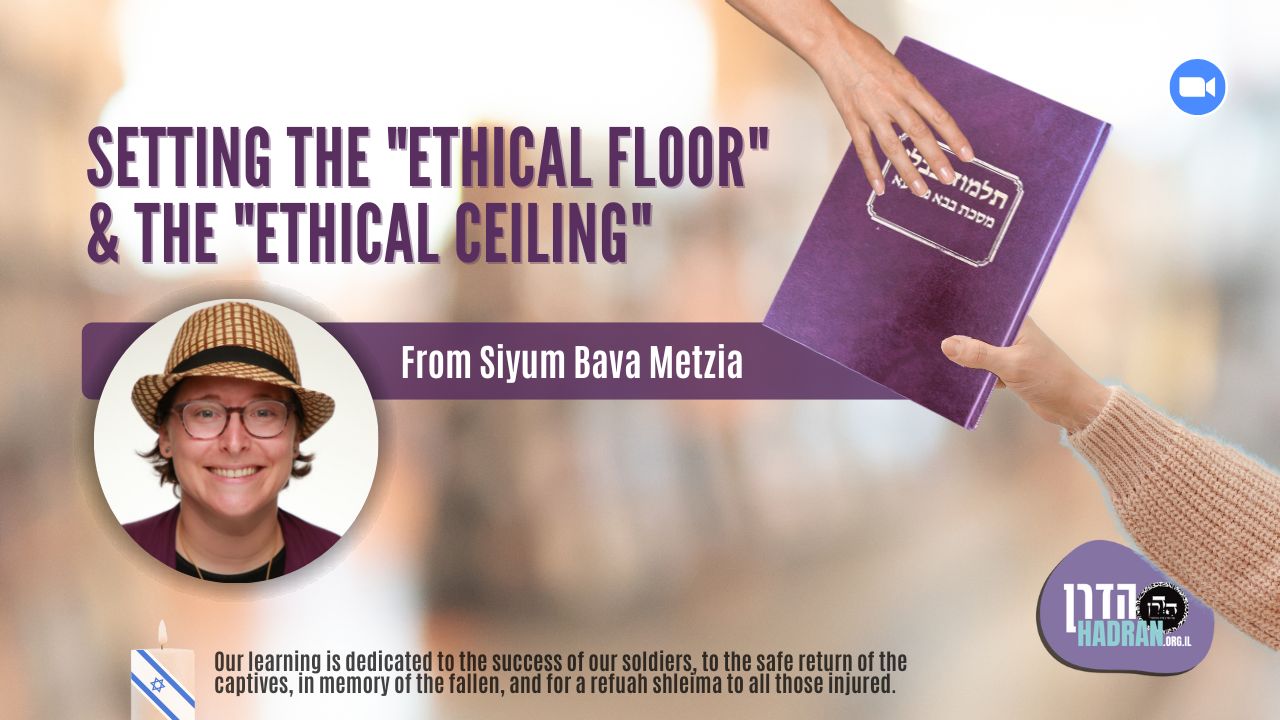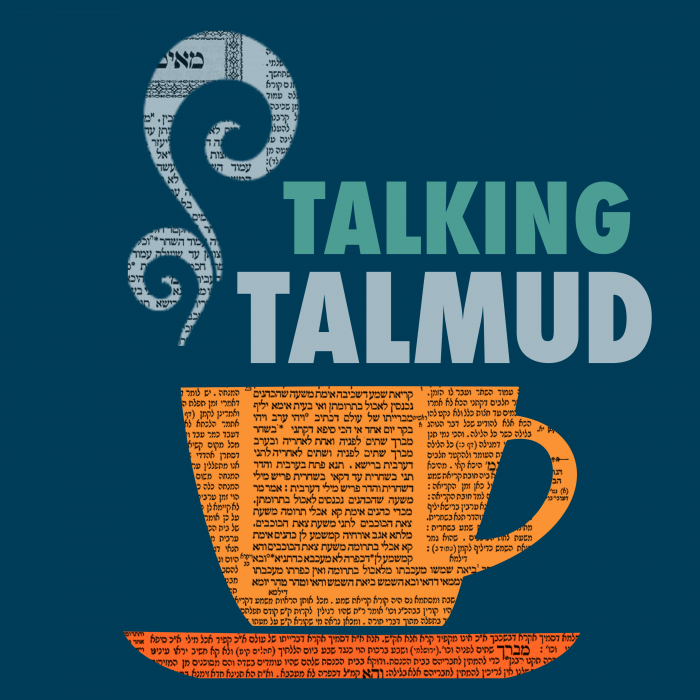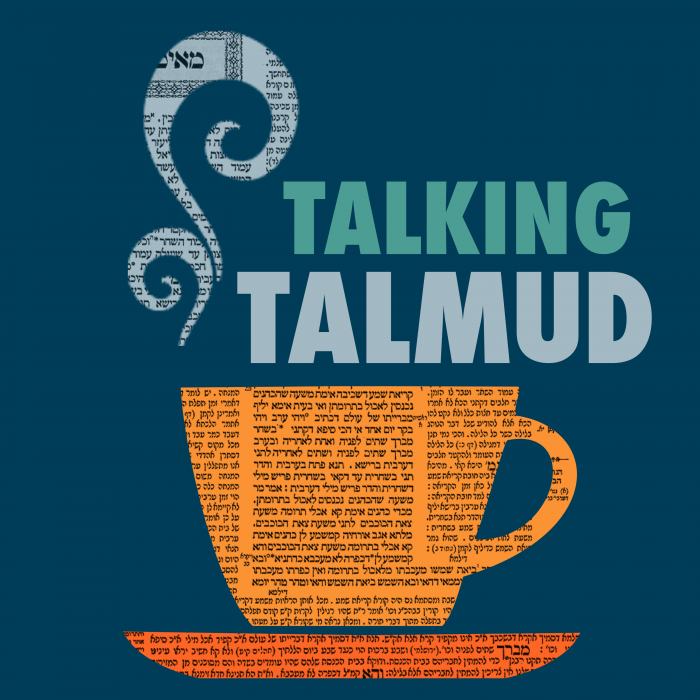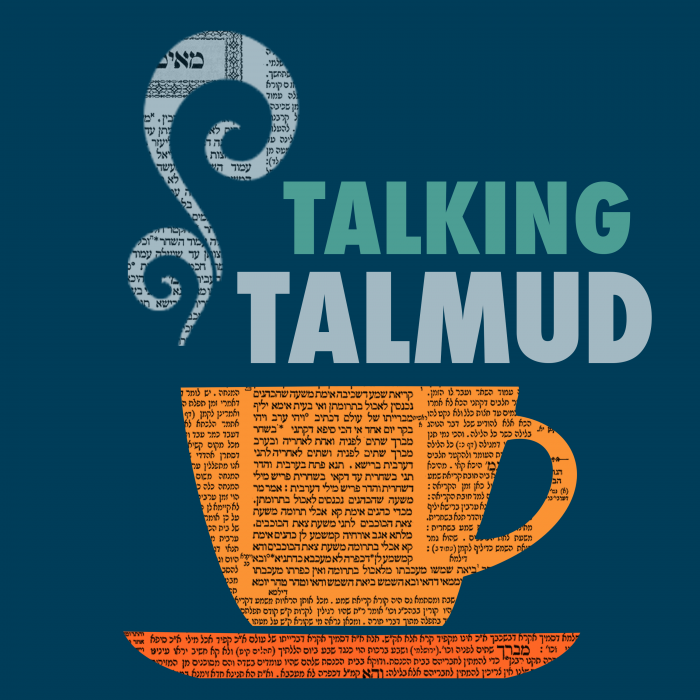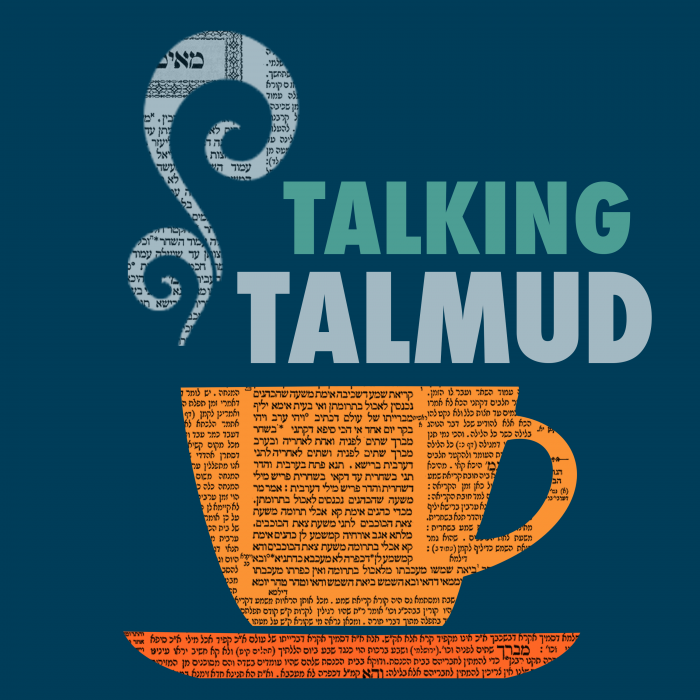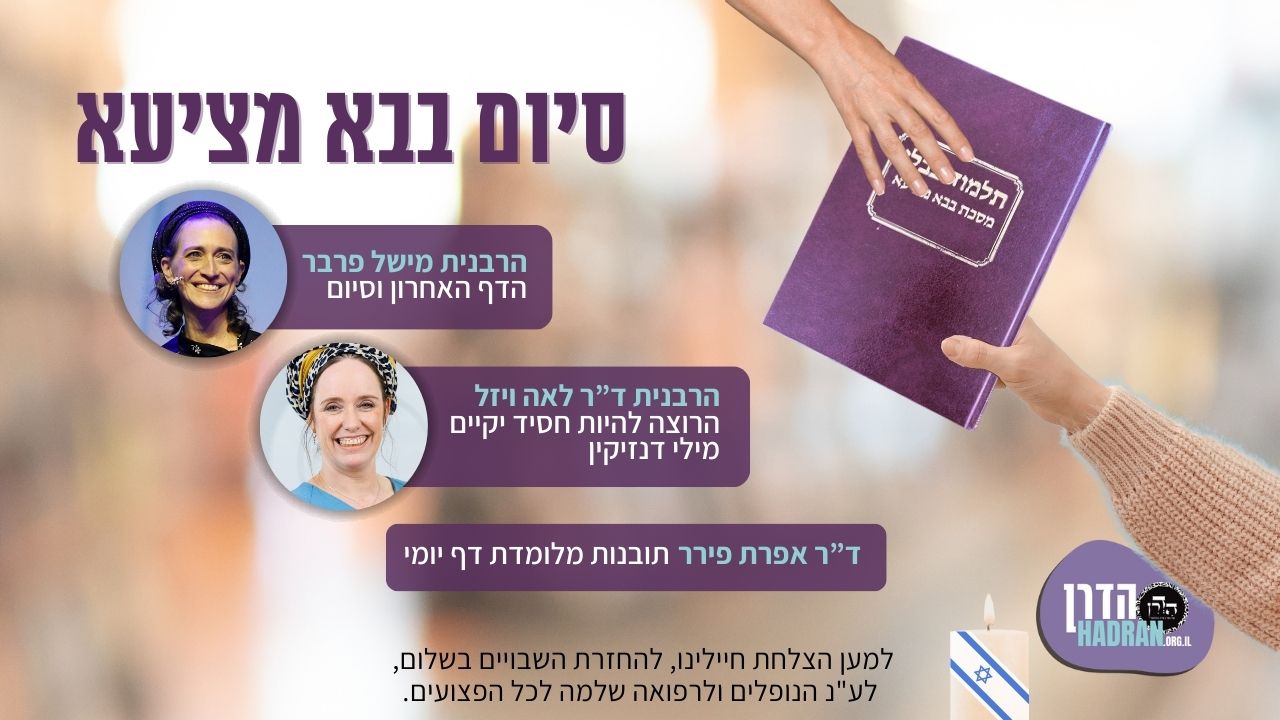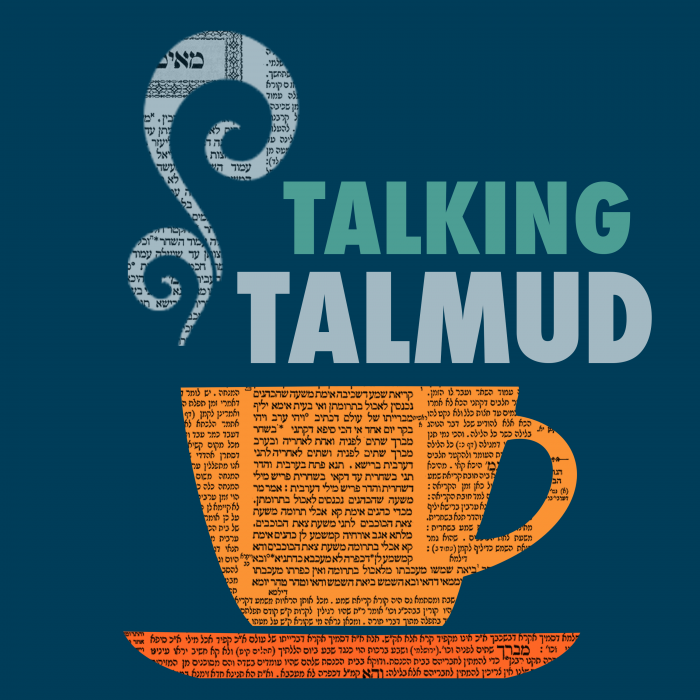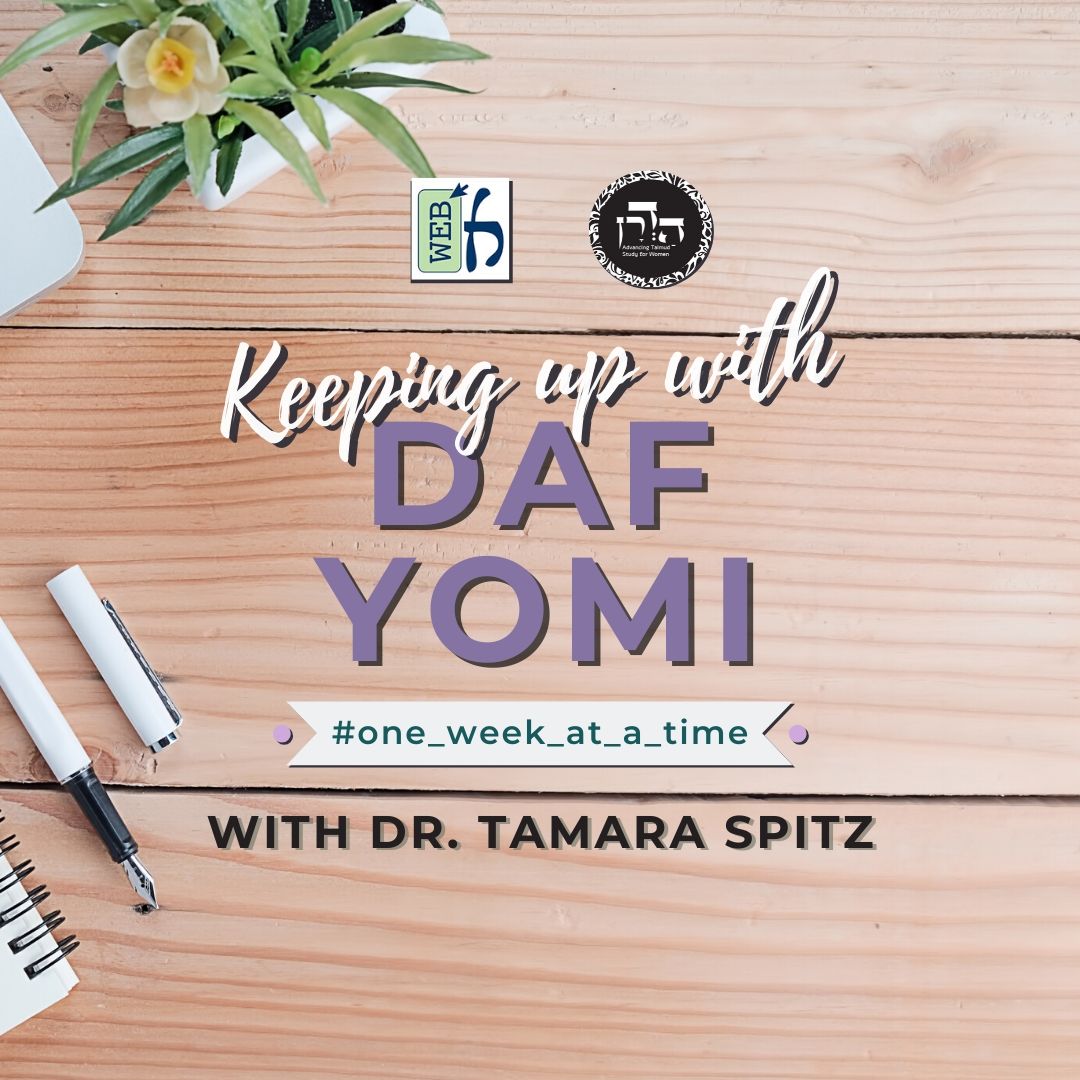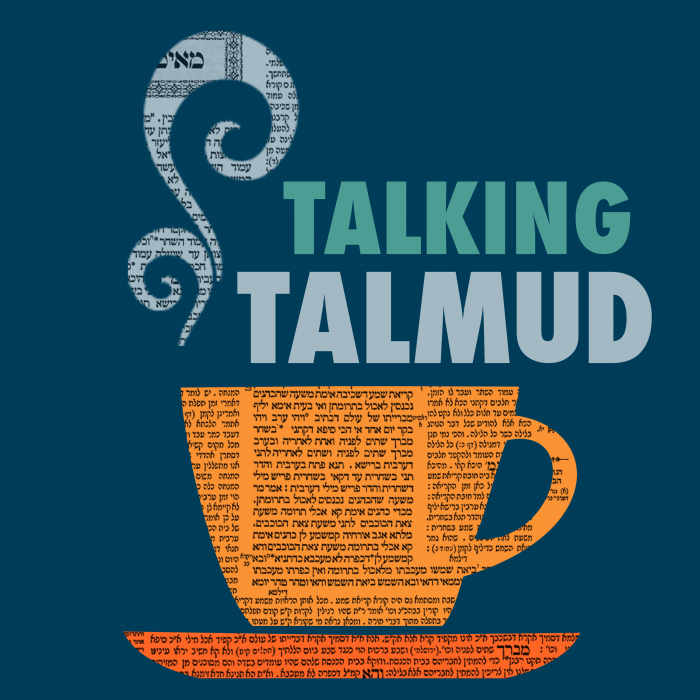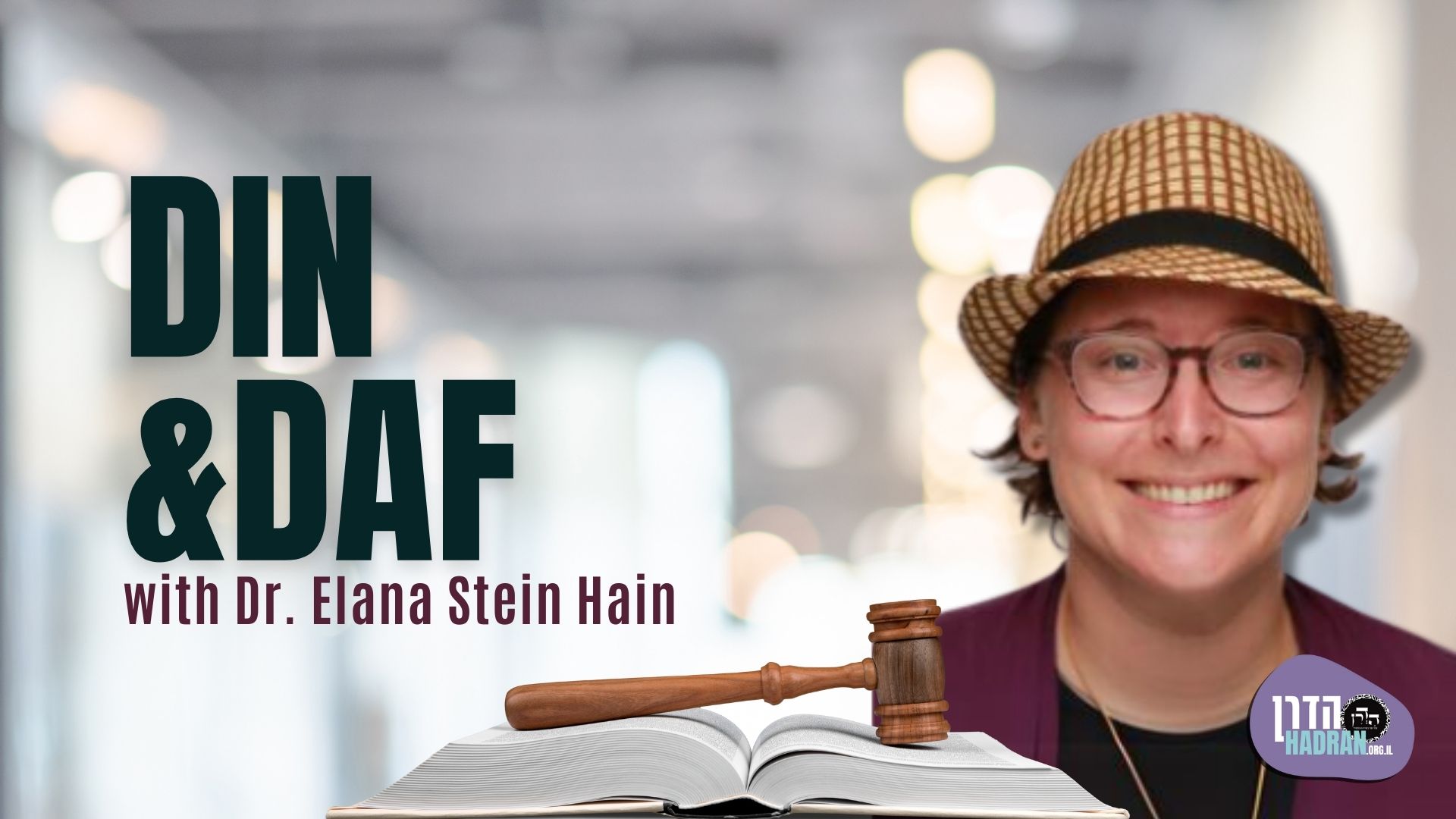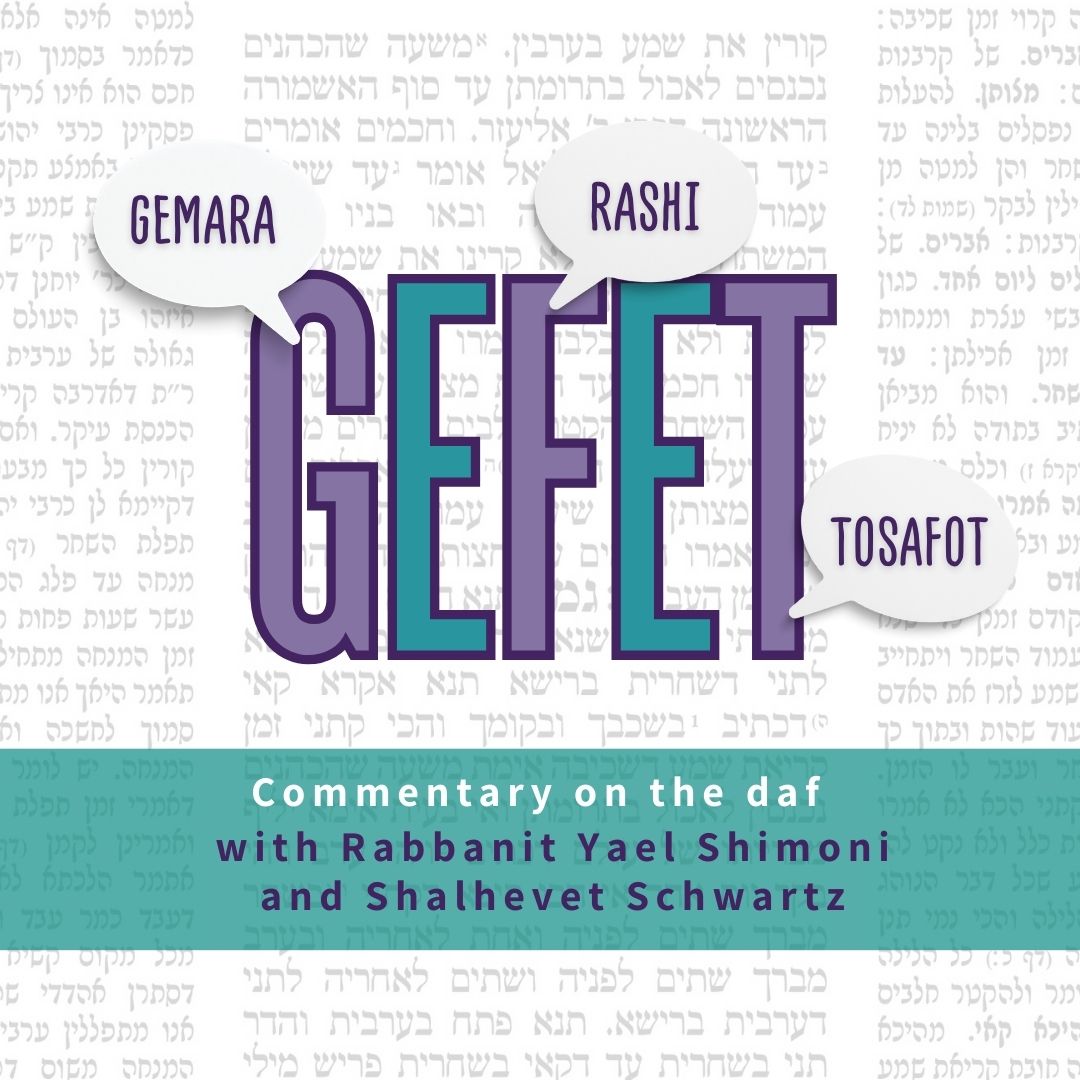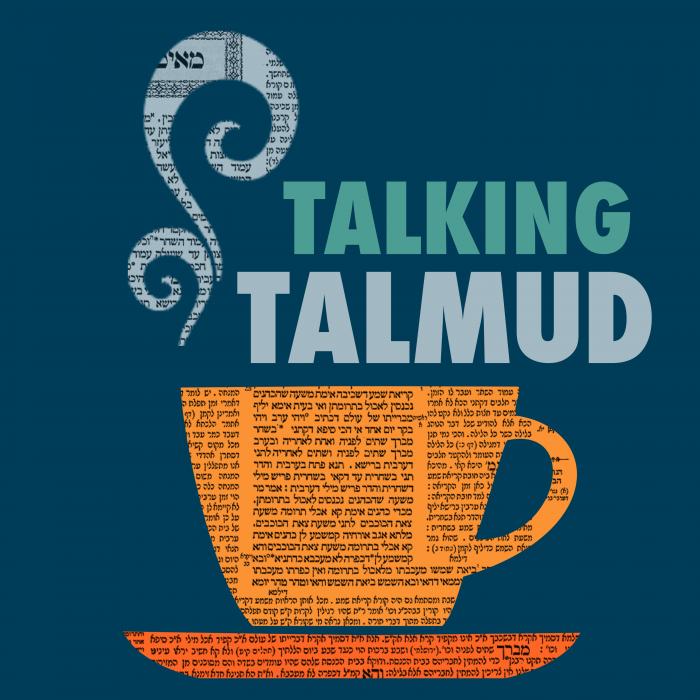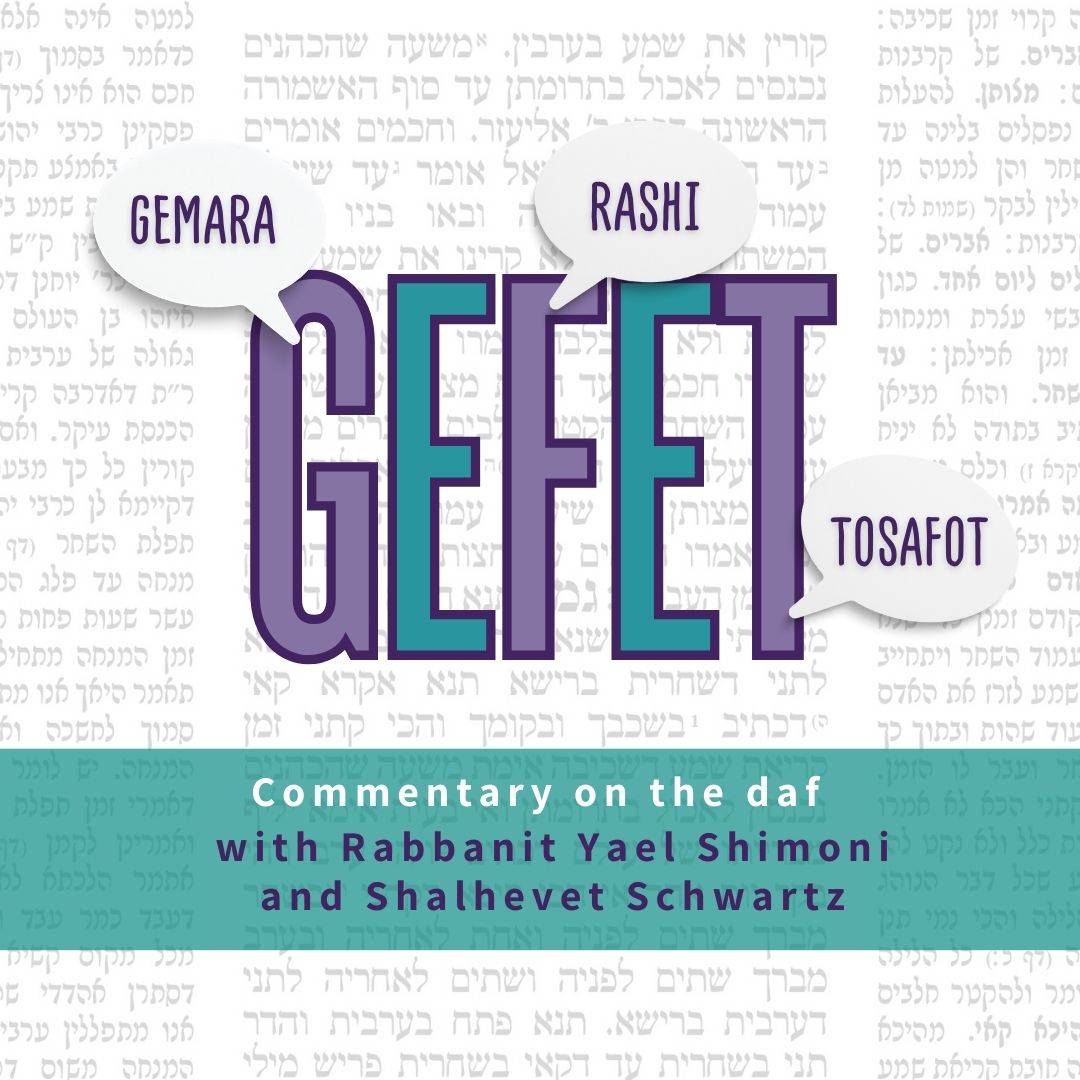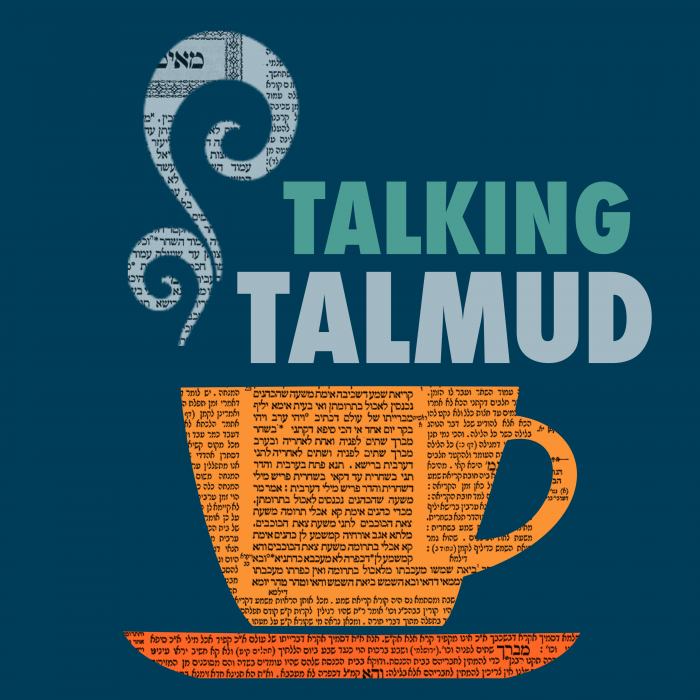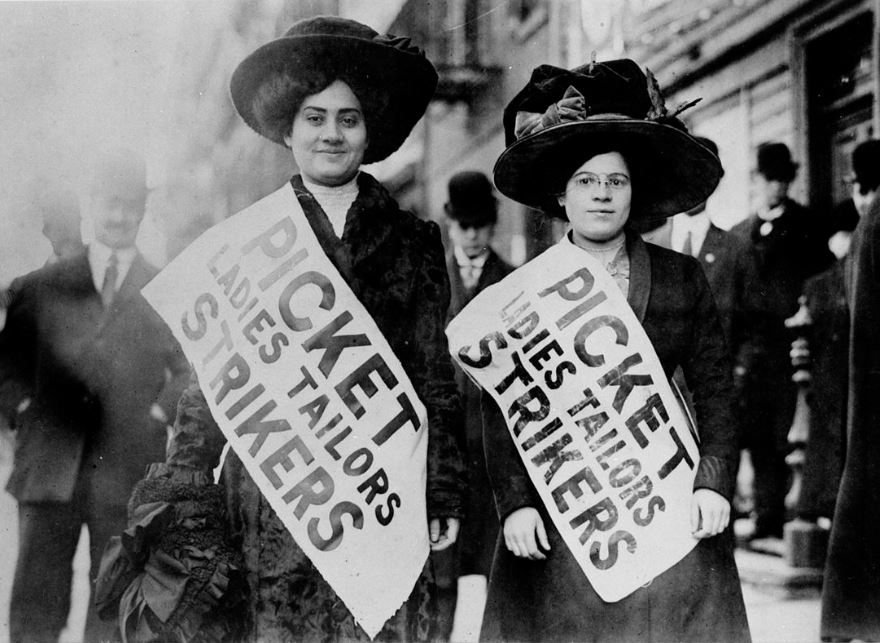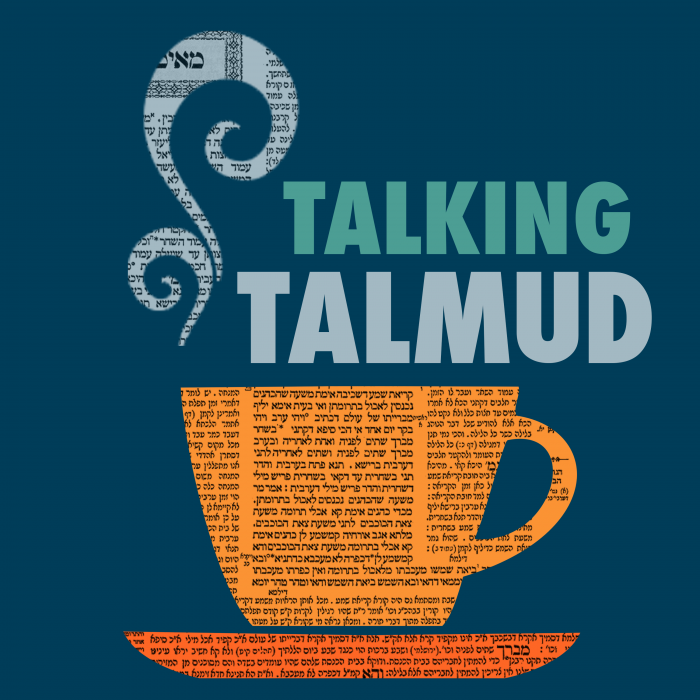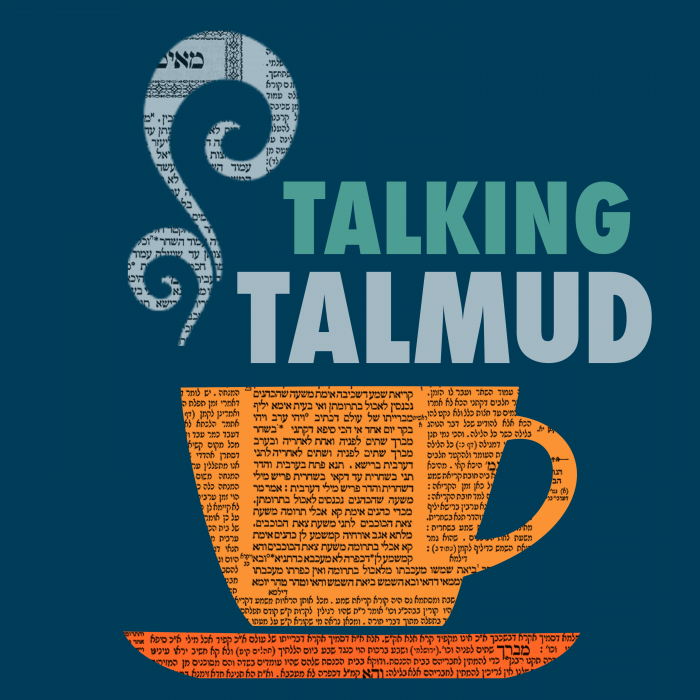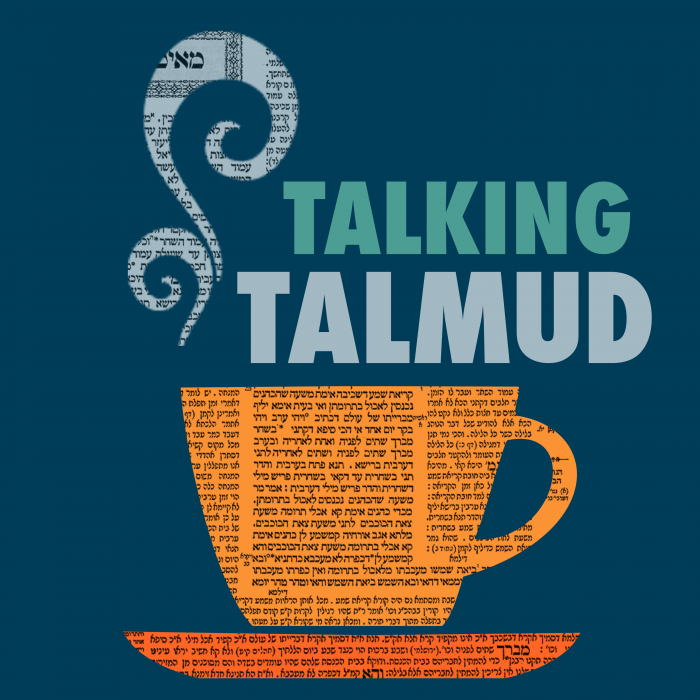Bava Metzia 4
תֹּאמַר בְּעֵדִים, שֶׁעַל מַה שֶּׁכָּפַר הוּא נִשְׁבָּע.
Would you say the same with regard to two witnesses, in which case the defendant takes an oath with regard to the claim that he denies, and not with regard to the debt about which they testify?
אֶלָּא אָמַר רַב פָּפָּא: אָתֵי מִגִּלְגּוּל שְׁבוּעָה דְּעֵד אֶחָד.
Rather, Rav Pappa said: Rabbi Ḥiyya’s a fortiori inference is derived from the extension of an oath that the testimony of one witness obligates him to take. Once a defendant is obligated to take an oath, the plaintiff can demand that he take an oath with regard to other claims that he has against him as well.
מָה לְגִלְגּוּל שְׁבוּעָה דְּעֵד אֶחָד, שֶׁכֵּן שְׁבוּעָה גּוֹרֶרֶת שְׁבוּעָה, תֹּאמַר בְּעֵדִים – דְּמָמוֹן קָא מְחַיְּיבִי!
The Gemara rejects this: What is notable about the extension of an oath that is obligated by the testimony of one witness? It is notable in that one oath leads to another oath. The obligation to take the second oath is not caused directly by the witness. Would you say the same in the case of witnesses, whose testimony renders the defendant liable to pay money? Incurring liability to pay one part of the claim does not extend further and incur liability to pay the rest.
פִּיו יוֹכִיחַ. מָה לְפִיו שֶׁכֵּן אֵינוֹ בְּהַכְחָשָׁה – עֵד אֶחָד יוֹכִיחַ שֶׁיֶּשְׁנוֹ בְּהַכְחָשָׁה וּמְחַיְּיבוֹ שְׁבוּעָה.
The Gemara responds: The admission of one’s mouth can prove that an element other than an oath can cause the defendant to be obligated to take an oath with regard to the rest of the claim. Although the a fortiori inference from admission alone was already rejected, due to the claim of: What is notable about the admission of one’s mouth, it is notable in that it is not subject to contradiction; the testimony of one witness can prove that even testimony that is subject to contradiction renders one liable to take an oath.
מָה לְעֵד אֶחָד, שֶׁכֵּן עַל מַה שֶּׁמֵּעִיד הוּא נִשְׁבָּע, תֹּאמַר בְּעֵדִים – שֶׁעַל מַה שֶּׁכָּפַר הוּא נִשְׁבָּע! פִּיו יוֹכִיחַ.
The a fortiori inference from the testimony of one witness was also rejected, as what is notable about the extension of an oath resulting from the testimony of one witness? It is notable in that the defendant takes an oath with regard to the matter concerning that which he testifies. Would you say the same with regard to two witnesses, in which case the defendant takes an oath with regard to the claim that he denies? Admission to part of a claim by one’s mouth can prove this difference irrelevant, as a defendant can be required to take an oath even with regard to a claim that he denies.
וְחָזַר הַדִּין: לֹא רְאִי זֶה כִּרְאִי זֶה, וְלֹא רְאִי זֶה כִּרְאִי זֶה. הַצַּד הַשָּׁוֶה שֶׁבָּהֶן שֶׁעַל יְדֵי טַעֲנָה וּכְפִירָה הֵן בָּאִין, וְנִשְׁבָּע. אַף אֲנִי אָבִיא עֵדִים, שֶׁעַל יְדֵי טַעֲנָה וּכְפִירָה הֵם בָּאִין – וְנִשְׁבָּע.
And the derivation has reverted to its starting point. At this point, the halakha is derived from a combination of the two sources: The aspect of this case, admission, is not like the aspect of that case, the extension of an oath resulting from the testimony of one witness, and the aspect of that case is not like the aspect of this case. Their common denominator is that these cases come before the court with a claim and its denial, and the defendant is obligated to take an oath. I will also include in the obligation to take an oath the case of Rabbi Ḥiyya, where there is testimony of two witnesses about part of the debt, which comes before the court with a claim and its denial. And therefore the defendant is obligated to take an oath. This is the inference to which Rabbi Ḥiyya was referring.
מָה לְהַצַּד הַשָּׁוֶה שֶׁבָּהֶן, שֶׁכֵּן לֹא הוּחְזַק כַּפְרָן. תֹּאמַר בְּעֵדִים שֶׁכֵּן הוּחְזַק כַּפְרָן.
The Gemara rejects this: What is notable about their common denominator, i.e., the common denominator shared by admission to part of a claim by the defendant and the extension of an oath resulting from the testimony of one witness? It is notable in that the defendant does not assume the presumptive status of one who falsely denies his debts. He has not been proven to be lying, so he is trusted to take an oath. Would you say the same with regard to the case of two witnesses who contradict the defendant’s denial of the plaintiff’s claim, where the defendant assumes the presumptive status of one who falsely denies his debts? In this case, he is no longer deemed trustworthy and his oath may not be credible.
וּבְעֵדִים מִי הוּחְזַק כַּפְרָן! וְהָאָמַר רַב אִידִי בַּר אָבִין אָמַר רַב חִסְדָּא: הַכּוֹפֵר בְּמִלְוֶה – כָּשֵׁר לְעֵדוּת. בְּפִיקָּדוֹן – פָּסוּל לְעֵדוּת.
The Gemara asks: But in a case where his denial is contradicted by two witnesses, does he assume the presumptive status of one who falsely denies his debts? But doesn’t Rav Idi bar Avin say that Rav Ḥisda says: One who denies a claim that he received a loan and is contradicted by witnesses is fit to bear witness in a different case. He does not assume the status of a confirmed liar, as perhaps he intended to return the money afterward and denied the claim only in order to buy time until he acquired the necessary funds to repay the loan. By contrast, if one denies receiving a deposit and witnesses testify that he is lying, he is disqualified from bearing witness in other cases, as in that case he has no reason to buy time and is clearly a robber. Therefore, Rabbi Ḥiyya’s a fortiori inference stands.
אֶלָּא פָּרֵיךְ הָכִי: מָה לְהַצַּד הַשָּׁוֶה שֶׁבָּהֶן – שֶׁכֵּן אֵינָן בְּתוֹרַת הֲזָמָה, תֹּאמַר בְּעֵדִים שֶׁיֶּשְׁנָן בְּתוֹרַת הֲזָמָה!
Rather, refute the inference like this: What is notable about their common denominator, i.e., the common denominator shared by admission to part of a claim by the defendant and the extension of an oath resulting from the testimony of one witness? It is notable in that these cases are not subject to the halakhot of conspiring witnesses. Even if witnesses testify that the single witness lied, he is not required to pay the defendant the sum that he sought to require him to pay, which is the punishment exacted upon conspiring witnesses. Would you say the same halakhot with regard to two witnesses, who are subject to the halakhot of conspiring witnesses?
הָא לָא קַשְׁיָא: רַבִּי חִיָּיא תּוֹרַת הֲזָמָה לָא פָּרֵיךְ.
The Gemara rejects this: This is not difficult, as Rabbi Ḥiyya does not refute this inference based on the punishment accompanying the halakhot of conspiring witnesses. In other words, Rabbi Ḥiyya does not accept this refutation, as while this halakha does not apply at all to the admission of a defendant, it does apply to the testimony of a single witness in that if two witnesses testify that the single witness is a conspiring witness, his testimony is rendered void.
אֶלָּא דְּקָאָמַר וְתַנָּא תּוּנָא מִי דָּמֵי? הָתָם לְמַלְוֶה אִית לֵיהּ סָהֲדֵי, לְלֹוֶה לֵית לֵיהּ סָהֲדֵי דְּלָא מַסֵּיק לֵיהּ וְלָא מִידֵּי, דְּאִי הֲווֹ לֵיהּ סָהֲדֵי לְלֹוֶה דְּלָא מַסֵּיק לֵיהּ וְלָא מִידֵּי – לָא בָּעֵי רַבִּי חִיָּיא לְאִשְׁתְּבוֹעֵי, הָכָא כִּי הֵיכִי דַּאֲנַן סָהֲדֵי בְּהַאי – אֲנַן סָהֲדֵי בְּהַאי, וַאֲפִילּוּ הָכִי מִשְׁתַּבְעִי!
The Gemara asks: But with regard to that which was stated (3a): And the tanna of the mishna also taught a similar halakha to that of Rabbi Ḥiyya, there is a difficulty. Is the case of the mishna comparable to the halakha of Rabbi Ḥiyya? There, in the case of witnesses to a loan, the creditor has witnesses to support his claim that there was a loan while the debtor does not have witnesses to support his claim that he does not owe the creditor anything. As, if the debtor had witnesses to support his claim that he does not owe the creditor anything, Rabbi Ḥiyya would not require him to take an oath. By contrast, here, in the case of the mishna, just as it is clear to us that this claimant has a right to the garment, as he is holding it, so too, is it clear to us that that other claimant has a right to the garment, as he is also holding it. Yet nevertheless, in the mishna each party is required to take an oath.
אֶלָּא כִּי אִיתְּמַר ״וְתַנָּא תּוּנָא״ – אַאִידַּךְ דְּרַבִּי חִיָּיא אִיתְּמַר, דְּאָמַר רַבִּי חִיָּיא: ״מָנֶה לִי בְּיָדְךָ״ וְהַלָּה אוֹמֵר: ״אֵין לְךָ בְּיָדִי אֶלָּא חֲמִישִּׁים זוּז, וְהֵילָךְ״ – חַיָּיב.
Rather, when the phrase was stated: And the tanna of the mishna also taught a similar halakha, it was stated with regard to another statement of Rabbi Ḥiyya. As Rabbi Ḥiyya says: If one says to another: I have one hundred dinars in your possession, and the other says in response: You have only fifty dinars in my possession, and here you are, handing him the money, he is obligated to take an oath that he does not owe the remainder.
מַאי טַעְמָא – ״הֵילָךְ״ נָמֵי כְּמוֹדֶה מִקְצָת הַטְּעָנָה דָּמֵי.
What is the reason? One who says: Here you are, while immediately giving the money, is also considered like one who admits to part of the claim. It cannot be reasoned that by immediately handing over the amount to which he admits, the defendant thereby reduces the claim by the fifty dinars that he denies owing, and he is consequently exempt from taking an oath like any defendant who denies the claim entirely.
וְתַנָּא תּוּנָא: שְׁנַיִם אוֹחֲזִין בְּטַלִּית.
Concerning this ruling of Rabbi Ḥiyya, the Gemara comments: And the tanna of the mishna taught a similar halakha, citing the mishna beginning: If two people came to court holding a garment.
וְהָא הָכָא, כֵּיוָן דְּתָפֵיס – אֲנַן סָהֲדֵי דְּמַאי דְּתָפֵיס הֵילָךְ הוּא, וְקָתָנֵי: יִשָּׁבַע.
The Gemara explains the comparison: And here, in the mishna, since each one grasps half the garment, it is clear to us that what one grasps is in his possession, just as if the other one had said to him: Here you are, I am giving it to you. And the mishna teaches that he takes an oath. Evidently, in a case where one denies part of a claim that is brought against him, and with regard to the rest of the claim he says to the claimant: Here you are, he is obligated to take an oath.
וְרַב שֵׁשֶׁת אָמַר ״הֵילָךְ פָּטוּר״. מַאי טַעְמָא? כֵּיוָן דְּאָמַר לֵיהּ ״הֵילָךְ״, הָנֵי זוּזִי דְּקָא מוֹדֵי בְּגַוַּיְיהוּ – כְּמַאן דְּנָקֵיט לְהוּ מַלְוֶה דָּמֵי. בְּאִינָךְ חֲמִשִּׁים הָא לָא מוֹדֵי, הִלְכָּךְ לֵיכָּא הוֹדָאַת מִקְצָת הַטְּעָנָה.
And Rav Sheshet says: One who says about part of the claim: Here you are, and denies the rest of the claim, is exempt from taking an oath about the rest. What is the reason? Since he said to him: Here you are, those dinars that he admitted to owing are considered as if the creditor has them in his possession already, and with regard to the other fifty dinars, the defendant did not admit to owing them. Therefore, there is no admission to part of the claim.
וּלְרַב שֵׁשֶׁת קַשְׁיָא מַתְנִיתִין! אָמַר לְךָ רַב שֵׁשֶׁת: מַתְנִיתִין תַּקָּנַת חֲכָמִים הִיא.
The Gemara asks: But according to the opinion of Rav Sheshet, the mishna is difficult, as it seems to be a comparable case and yet an oath is required. The Gemara answers: Rav Sheshet could have said to you: The oath mentioned in the mishna is a rabbinic ordinance, which pertains specifically to that case. In general, a debtor who immediately hands over the money that he admits to owing is exempt from taking an oath.
וְאִידַּךְ? אִין תַּקָּנַת חֲכָמִים הִיא. וּמִיהוּ, אִי אָמְרַתְּ בִּשְׁלָמָא מִדְּאוֹרָיְיתָא ״הֵילָךְ״ חַיָּיב – מְתַקְּנִי רַבָּנַן שְׁבוּעָה כְּעֵין דְּאוֹרָיְיתָא, אֶלָּא אִי אָמְרַתְּ מִדְּאוֹרָיְיתָא ״הֵילָךְ״ פָּטוּר – מְתַקְּנִי רַבָּנַן שְׁבוּעָה דְּלֵיתָא דִּכְווֹתַהּ בִּדְאוֹרָיְיתָא?
And how would the other amora, Rabbi Ḥiyya, respond to this assertion? Indeed, he would agree that it is a rabbinic ordinance. However, granted, if you say that by Torah law one who says: Here you are, is obligated to take an oath, that explains why the Sages instituted the oath mentioned in the mishna, as it is similar to an oath administered by Torah law. But if you say that by Torah law one who says: Here you are, is exempt from taking an oath, would the Sages institute an oath that has no corresponding oath in Torah law? Clearly, there is a basis for the oath instituted by the Sages in Torah law, and that basis is the case where the defendant says: Here you are.
מֵיתִיבִי:
The Gemara raises an objection to the opinion of Rabbi Ḥiyya from a baraita:
סְלָעִים, דִּינָרִין. מַלְוֶה אוֹמֵר חָמֵשׁ, וְלֹוֶה אוֹמֵר שָׁלֹשׁ. רַבִּי שִׁמְעוֹן בֶּן אֶלְעָזָר אוֹמֵר: הוֹאִיל וְהוֹדָה מִקְצָת הַטְּעָנָה – יִשָּׁבַע. רַבִּי עֲקִיבָא אוֹמֵר: אֵינוֹ אֶלָּא כְּמֵשִׁיב אֲבֵידָה, וּפָטוּר.
If it is written in a promissory note that one borrowed an unspecified amount of sela’im, or that one borrowed an unspecified amount of dinars, and the creditor says: I lent you five sela, and the debtor says: You lent me only three, in this case Rabbi Shimon ben Elazar says: Since the debtor admitted to part of the claim, he takes an oath. Rabbi Akiva says: Since the wording of the note indicates only that he owes two dinars, the minimum plural amount, by admitting that he owes three he is merely the equivalent of one returning a lost item, and he is exempt from taking an oath.
קָתָנֵי מִיהַת: רַבִּי שִׁמְעוֹן בֶּן אֶלְעָזָר אוֹמֵר, הוֹאִיל וְהוֹדָה מִקְצָת הַטְּעָנָה – יִשָּׁבַע. טַעְמָא דְּאָמַר שָׁלֹשׁ, הָא שְׁתַּיִם פָּטוּר, וְהַאי שְׁטָר דְּקָמוֹדֵי בֵּיהּ הֵילָךְ הוּא, וּשְׁמַע מִינַּהּ הֵילָךְ פָּטוּר!
In any event, the baraita teaches that Rabbi Shimon ben Elazar says: Since the debtor admitted to part of the claim, he takes an oath. This indicates that the reason that he is obligated to take an oath is specifically because he said that he owes three dinars, but had he admitted to owing only two, he would have been exempt from taking an oath. And concerning the minimal obligation recorded in this promissory note, to which he admits, which is two dinars, it is as though he said: Here you are. An obligation recorded in a promissory note is tantamount to an obligation concerning which the defendant says: Here you are. And therefore, conclude from it that one who says: Here you are, is exempt from taking an oath with regard to the part of the claim he denies.
לָא, לְעוֹלָם אֵימָא לָךְ שְׁתַּיִם חַיָּיב, וְהַאי דְּקָתָנֵי שָׁלֹשׁ, לְאַפּוֹקֵי מִדְּרַבִּי עֲקִיבָא, דְּאָמַר: מֵשִׁיב אֲבֵידָה הָוֵי וּפָטוּר, קָא מַשְׁמַע לַן דְּמוֹדֶה מִקְצָת הַטְּעָנָה הָוֵי, וְחַיָּיב.
The Gemara rejects this: No, actually I will say to you that even if he admitted that he owes two dinars he is obligated to take an oath, and the reason that the baraita teaches the dispute specifically with regard to the case of three dinars is not to exclude a case where he admits that he owes only two, but rather it is to exclude the opinion of Rabbi Akiva, who says that he is the equivalent of one returning a lost item, and he is therefore exempt. Therefore, Rabbi Shimon ben Elazar teaches us that he is considered like one who admits to part of the claim, and he is obligated to take an oath.
אִי הָכִי: רַבִּי שִׁמְעוֹן בֶּן אֶלְעָזָר אוֹמֵר: הוֹאִיל וְהוֹדָה מִקְצָת הַטְּעָנָה יִשָּׁבַע, ״אַף זֶה יִשָּׁבַע״ מִבְּעֵי לֵיהּ!
The Gemara asks: If so, the baraita should have been phrased differently. If the defendant is obligated to take an oath even in a case where he admits that he owes two dinars, rather than stating that Rabbi Shimon ben Elazar says: Since the debtor admitted to part of the claim, he takes an oath, the baraita should have stated: Even this one, who admits to owing three dinars, takes an oath, in addition to one who admits to owing two dinars.
אֶלָּא: לְעוֹלָם שְׁתַּיִם פָּטוּר, וְהֵילָךְ חַיָּיב. וְשָׁאנֵי הָכָא, דְּקָא מְסַיַּיע לֵיהּ שְׁטָרָא.
Rather, that explanation should be rejected. Actually, if he admits that he owes two dinars, he is exempt from taking an oath, but nevertheless, one who says: Here you are, is obligated to take an oath. And the reason for this distinction is that here, the case is different, as the note supports him, i.e., it indicates that he owes two dinars. Therefore, he is exempt from taking an oath with regard to the rest.
אִי נָמֵי: מִשּׁוּם דְּהָוֵה לֵיהּ שְׁטָר שִׁעְבּוּד קַרְקָעוֹת, וְאֵין נִשְׁבָּעִין עַל כְּפִירַת שִׁעְבּוּד קַרְקָעוֹת.
Alternatively, if he admits to owing two dinars he is exempt for a different reason: Because a promissory note creates a lien on the debtor’s land, and there is a principle that one does not take an oath with regard to a debtor’s denial of a debt that is secured with a lien on land. Oaths are administered only when one denies owing money or movable property.
אִיכָּא דְּמוֹתֵיב מִסֵּיפָא, רַבִּי עֲקִיבָא אוֹמֵר: אֵינוֹ אֶלָּא כְּמֵשִׁיב אֲבֵידָה וּפָטוּר. טַעְמָא דְּאָמַר שָׁלֹשׁ, הָא שְׁתַּיִם חַיָּיב. וְהָא שְׁטָר, כֵּיוָן דְּקָא מוֹדֵי בֵּיהּ כְּ״הֵילָךְ״ דָּמֵי, שְׁמַע מִינַּהּ ״הֵילָךְ״ חַיָּיב!
There are those who raise an objection to Rav Sheshet’s opinion from the latter clause of this baraita, which teaches that Rabbi Akiva says: He is merely the equivalent of one returning a lost item and is exempt from taking an oath. The Gemara infers: The reason he is exempt is that he said that he owes three dinars. But had he admitted to owing only two, he would have been obligated to take an oath. And concerning the minimal obligation recorded in this promissory note, to which he admits, which is two dinars, it is as though he said: Here you are. Learn from it that one who says: Here you are, is obligated to take an oath.
לָא, לְעוֹלָם אֵימָא לָךְ שְׁתַּיִם נָמֵי פָּטוּר, וְהַאי דְּקָתָנֵי שָׁלֹשׁ, לְאַפּוֹקֵי מִדְּרַבִּי שִׁמְעוֹן בֶּן אֶלְעָזָר, דְּאָמַר מוֹדֶה מִקְצָת הַטַּעֲנָה הָוֵי – וְחַיָּיב, קָא מַשְׁמַע לַן דְּמֵשִׁיב אֲבֵידָה הָוֵי – וּפָטוּר.
The Gemara rejects this: No, actually I will say to you that if he admits that he owes two dinars he is also exempt from taking an oath, and the reason that the baraita teaches the dispute specifically with regard to the case of three dinars is to exclude the opinion of Rabbi Shimon ben Elazar, who says that he is considered one who admits to part of the claim and he is obligated to take an oath. Rabbi Akiva, therefore, teaches us that in his opinion, the defendant is the equivalent of one returning a lost item, and he is exempt from taking an oath.
הָכִי נָמֵי מִסְתַּבְּרָא. דְּאִי סָלְקָא דַעְתָּךְ: שְׁתַּיִם חַיָּיב, בְּשָׁלֹשׁ הֵיכִי פָּטַר לֵיהּ רַבִּי עֲקִיבָא, הַאי אִעָרוֹמֵי קָא מַעֲרִים! סָבַר: אִי אָמֵינָא שְׁתַּיִם בָּעֵינָא אִשְׁתְּבוֹעֵי, אֵימָא שָׁלֹשׁ דְּאֶהְוֵי כְּמֵשִׁיב אֲבֵידָה, וְאִיפָּטֵר. אֶלָּא שְׁמַע מִינַּהּ: שְׁתַּיִם נָמֵי פָּטוּר.
The Gemara comments: So too, it is reasonable to explain the baraita as just explained, as, if it enters your mind that one who admits that he owes two dinars is obligated to take an oath, how does Rabbi Akiva deem him exempt in a case where he admits that he owes three dinars? Perhaps this debtor is employing artifice, thinking: If I say that I owe two, I will be required to take an oath. Therefore, I will say that I owe three so that I will be considered equivalent to one returning a lost item and will be exempt from taking an oath. Rather, learn from it that even if he admits that he owes only two dinars, he is also exempt from taking an oath.
אֶלָּא קַשְׁיָא לְרַבִּי חִיָּיא! שָׁאנֵי הָתָם דְּקָא מְסַיַּיע לֵיהּ שְׁטָרָא. אִי נָמֵי מִשּׁוּם דְּהָוֵה לֵיהּ שְׁטָר שִׁעְבּוּד קַרְקָעוֹת, וְאֵין נִשְׁבָּעִין עַל כְּפִירַת שִׁעְבּוּד קַרְקָעוֹת.
The Gemara asks: But this explanation poses a difficulty to the opinion of Rabbi Ḥiyya, that a defendant is obligated to take an oath in a case where he says: Here you are. In other words, Rabbi Ḥiyya’s opinion is negated by the case of one who admits that he owes only two dinars, where he is exempt from taking an oath. The Gemara answers: The case there is different, as the note supports him. Therefore, he is not required to take an oath. Alternatively, he is exempt because a promissory note creates a lien on the debtor’s land, and there is a principle that one does not take an oath with regard to a debtor’s denial of a debt that is secured with a lien on land.
מֵתִיב מַר זוּטְרָא בְּרֵיהּ דְּרַב נַחְמָן: טְעָנוֹ כֵּלִים וְקַרְקָעוֹת, הוֹדָה בַּכֵּלִים וְכָפַר בַּקַּרְקָעוֹת, הוֹדָה בַּקַּרְקָעוֹת וְכָפַר בַּכֵּלִים – פָּטוּר. הוֹדָה מִקְצָת קַרְקָעוֹת – פָּטוּר, מִקְצָת כֵּלִים – חַיָּיב.
Mar Zutra, son of Rav Naḥman, raises an objection to the opinion of Rav Sheshet from a mishna (Shevuot 38b): If one claimed that another owed him vessels and land, and the defendant admitted to owing him vessels but denied that he owes him land, or conversely, if he admitted to owing him land but denied that he owes him vessels, he is exempt from taking an oath with regard to what he denies. If he admitted that he owes him part of the land, he is exempt. If he admitted to owing some of the vessels, he is obligated to take an oath with regard to the remainder.
טַעְמָא דְּכֵלִים וְקַרְקָעוֹת, דְּקַרְקַע לָאו בַּת שְׁבוּעָה הִיא, הָא כֵּלִים וְכֵלִים דּוּמְיָא דְּכֵלִים וְקַרְקָעוֹת חַיָּיב. הֵיכִי דָּמֵי? לָאו דְּאָמַר לֵיהּ הֵילָךְ, וּשְׁמַע מִינַּהּ הֵילָךְ חַיָּיב!
The Gemara infers: The reason he is exempt in the first cases is because the claim is for vessels and land, as a claim with regard to land is not subject to an oath. But if the claim is for vessels and vessels, i.e., two sets of vessels, in a manner similar to the case of a claim for vessels and land, he is obligated to take an oath. What are the circumstances of such a case? Is it not a case where he said to him: Here you are? And learn from the mishna that one who says: Here you are, is obligated to take an oath.
לָא, לְעוֹלָם אֵימָא לָךְ כֵּלִים וְכֵלִים נָמֵי פָּטוּר, וְהָא דְּקָתָנֵי כֵּלִים וְקַרְקָעוֹת, הָא קָא מַשְׁמַע לַן: הוֹדָה בְּמִקְצָת כֵּלִים – חַיָּיב אַף עַל הַקַּרְקָעוֹת.
The Gemara answers: No, actually I will say to you that if the claim is for vessels and vessels he is also exempt. And the fact that the mishna teaches the case of vessels and land teaches us this different halakha: If he admitted that he owes some of the vessels, and is therefore obligated to take an oath, he is also obligated to take an oath with regard to the land that he denied owing his creditor, although in and of itself one does not take an oath with regard to land.
מַאי קָא מַשְׁמַע לַן – זוֹקְקִין? תְּנֵינָא: זוֹקְקִין הַנְּכָסִים שֶׁאֵין לָהֶן אַחְרָיוּת אֶת הַנְּכָסִים שֶׁיֵּשׁ לָהֶן אַחְרָיוּת לִישָּׁבַע עֲלֵיהֶם.
The Gemara asks: What is this teaching us? Is this teaching the halakha of binding? According to this halakha, one who is obligated to take an oath in response to a claim can be required to take an oath with regard to an additional claim of land. This cannot be, as we already learned this halakha in a mishna in tractate Kiddushin (26a): When there is a claim brought against a person for movable property and land, and he is obligated to take an oath with regard to the property that does not serve as a guarantee, i.e., the movable property, it binds the property that serves as a guarantee, i.e., the land, so that he is forced to take an oath with regard to it too. Why is this halakha repeated in tractate Shevuot?
הָכָא עִיקָּר, הָתָם אַגַּב גְּרָרָא נַסְבַהּ.
The Gemara answers: The mishna here, in Shevuot, is the main reference to this halakha, as it discusses the halakhot of oaths, whereas the mishna there, in tractate Kiddushin, cites it incidentally, in the context of a broader survey of the difference between these two types of property.



